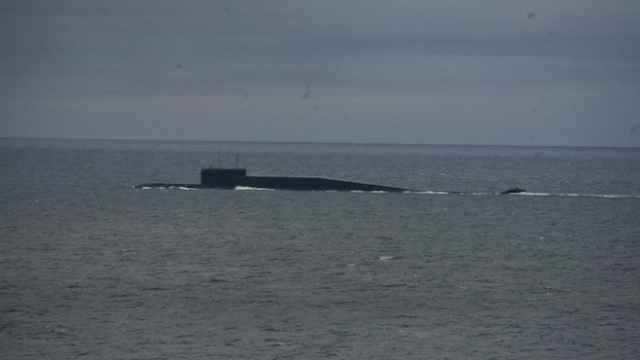Sweden's security services said on Wednesday that they feared possible Russian military operations against their country following an increase in espionage activity since the Ukraine crisis erupted a year ago.
In their annual report, the security services identified Russian espionage as the biggest intelligence threat facing neutral Sweden, which along with the wider Baltic region has seen a sharp increase in Russian naval and airforce activity over the past year.
"We see Russian intelligence operations in Sweden — we can't interpret this in any other way — as preparation for military operations against Sweden," security police chief analyst Wilhelm Unge told a news conference.
The report said Russian military espionage in Sweden included hacking, trying to get hold of secret equipment and trying to recruit agents.
"Sweden is leading in several areas of military and also civil technology and this attracts Russia's interest," he said.
"And we have identified and stopped several cases of technology procurement during the year where we assessed that it was not a question, as the Russian partner claimed, of civilian usage but aimed at strengthening the Russian military."
Unge said a third of Russian diplomats based in Sweden were believed to be intelligence officers.
Relations between Russia and the West have become badly strained since Moscow annexed Ukraine's Crimea peninsula last March and backed pro-Russian separatists battling Kiev's forces in eastern Ukraine.
Sweden is not in NATO but as a member of the European Union participates in economic sanctions imposed by the 28-nation bloc against Russia over its role in Ukraine.
Submarines and Bombers
Last November Sweden said it had proof that a foreign submarine had been operating illegally in the Stockholm archipelago after suspicions sparked the country's biggest military mobilization since the Cold War.
Alarmed by the increased Russian military activity in the Baltic Sea — such as Russian bombers rehearsing a bomb run on Sweden — Stockholm has said it will increase defense spending and plans more military co-operation with neighboring Finland, also a non-NATO EU member.
Despite the concerns about Russia, most Swedes still oppose their country abandoning its traditional neutrality and seeking NATO membership, according to opinion polls.
The new report also identified as a security threat the risk of Swedes traveling to Iraq and Syria to fight with militant groups such as Islamic State and possibly returning home radicalized and planning attacks on Swedish targets.
Like other European countries, Sweden saw a sharp increase in the number of its nationals going to fight in foreign conflicts during 2014. The report said that number was expected to continue rising.
A Message from The Moscow Times:
Dear readers,
We are facing unprecedented challenges. Russia's Prosecutor General's Office has designated The Moscow Times as an "undesirable" organization, criminalizing our work and putting our staff at risk of prosecution. This follows our earlier unjust labeling as a "foreign agent."
These actions are direct attempts to silence independent journalism in Russia. The authorities claim our work "discredits the decisions of the Russian leadership." We see things differently: we strive to provide accurate, unbiased reporting on Russia.
We, the journalists of The Moscow Times, refuse to be silenced. But to continue our work, we need your help.
Your support, no matter how small, makes a world of difference. If you can, please support us monthly starting from just $2. It's quick to set up, and every contribution makes a significant impact.
By supporting The Moscow Times, you're defending open, independent journalism in the face of repression. Thank you for standing with us.
Remind me later.






